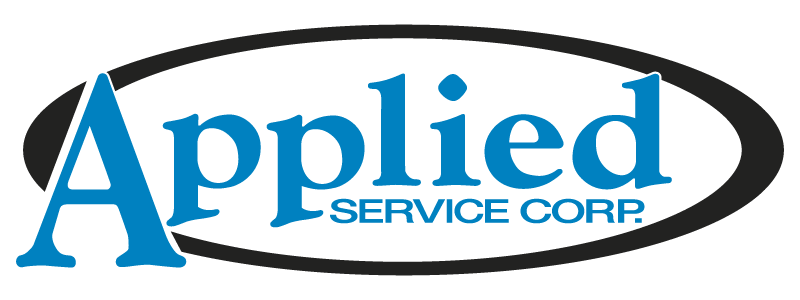Services
LSRP Services
In 2009, the Site Remediation Reform Act set forth sweeping changes to the way in which sites are remediated in New Jersey. SRRA established the affirmative obligation for responsible parties to remediate contaminated sites in a timely manner. To achieve this goal, SRRA created a category of remediation professionals known as Licensed Site Remediation professionals (LSRP). LSRPs “step into the shoes” of the New Jersey Department of Environmental Protection (NJDEP) to oversee the remediation of contaminated sites. SRRA requires that the LSRP comply with all remediation statutes and rules and consider Department-developed guidance when making remediation decisions.
Under this new remediation paradigm, with very limited exceptions, the remediating party need not wait for the Department’s direction and pre-approvals to commence and continue cleanups. Instead, they must initiate and complete the cleanup under the direction of an LSRP, who has responsibility for oversight of the environmental investigation and remediation. The Department monitors the remediation progress and the actions of LSRPs by requiring the submittal of forms and reports as remediation milestones are reached.
Effective May 7, 2012 when the LSRP program was fully implemented, all remediating parties were required to retain an LSRP and remediate their site under the new LSRP paradigm, regardless of when the cleanup was initiated. Most often, the requirement to retain an LSRP is triggered when work on regulated underground storage tanks (USTs) is performed since all regulated USTs closures must be overseen by an LSRP. To obtain a Uniform Construction Code (UCC) permit for closure of regulated USTs, townships and cities will require issuance of a Closure – Notice of Intent (NOI) by an LSRP. Following issuance of the UCC permit, the LSRP will be required to provide the NJDEP with 14-day notice prior to initiating UST closure activities. Applied Service Corp. has 3 LSRPs on staff and we are ready to assist you with your regulated UST closure activities.
Our LSRPs can also assist you when you’re buying property in New Jersey. To qualify as an innocent purchaser under the New Jersey Spill Compensation and Control Act (Spill Act), you must perform the required due diligence of the property’s history. In NJ, that means performing a combined ASTM Phase I Environmental Site Assessment and Preliminary Assessment Report (Phase I/PAR) prior to purchasing the property. If the due diligence indicates that there are potentially contaminated areas of concern (AOCs), one is then required to perform a Site Investigation in those AOCs. Our LSRPs are qualified to perform the required due diligence investigations to help you to be considered as an innocent purchaser.
Our LSRPs can also assist you with complying with the Industrial Site Recovery Act (ISRA) which is triggered by selling property occupied by “industrial establishments” or when an industrial establishment ceases operations. The property owner or tenant are jointly and severally liable for complying with the provisions of ISRA which include submittal of an initial General Information Notice (GIN) and a Preliminary Assessment Report (PAR). The NJDEP requires that an LSRP be retained for all ISRA-subject transactions.

Our LSRP Services Include:
Compliance
- Review and/or preparation of plans and specifications to determine the most cost effective remedial solution to soil and groundwater contamination.
- Design and construct on-site groundwater treatment systems.
- Phase 1 & Phase 2 Site Investigations
- NJDEP Remedial Action Reports
Field-testing Services
- GeoProbe® Split-spoon Sampling
- Potable Well Sampling
- Photo Ionization Detector (PID) Air Monitoring
Laboratory Analysis
- Forensic Age Dating of Contaminated Soils
- Corrosion Age Dating of Underground Storage Tank Samples
- Soil and Water Analysis
- Lead-based Paint Detection
New Jersey Certified Laboratory Services
Applied Service is a New Jersey certified laboratory for the Analyze Immediately parameters specified in the most current edition of the NJDEP's Field Sampling Procedures Manual. The NJDEP requires that these parameters are recorded and monitored by firms certified by the NJDEP as licensed laboratories. Applied Service can provide certified lab services during monitoring and temporary well sampling events.
Due Diligence Phase I And Phase ll Environmental Site Assessments
The purpose of due diligence is to help you minimize risks and protect yourself from liability associated with real estate and other business transactions. When completed successfully, and by experts, you can confidently manage the acquisition of Brownfield sites as well as transfer in ownership of multifamily, commercial, and industrial real estate.
The staff at Applied Service can help you identify the "recognized environmental conditions" that may present a risk or potential liability. Our strengths include a strong foundation in regulatory analysis, an ability to understand the unique characteristics of property transfers and familiarity with the complexities of executing the due diligence disclosures are presented in a clear, concise, and complete report without speculation. We provide an independent, professional opinion of any recognized environmental conditions and potential liabilities associated with the property you are purchasing.
Phase I Environmental Site Assessments
All Phase I Environmental Site Assessments (Phase I ESAs) are performed in accordance with the most current ASTM standards (ASTM E1527-05). Each assessment includes a review of the property's historical and present use; definition of the site geology and hydrogeology; environmental database reviews of the property and its vicinity; and a visual reconnaissance of the property. All Appropriate Inquiries (AAl) are made according to ASTM's standards as well as the USEPA'S final rule with respect to conducting inquiries into the previous ownership, uses, and environmental conditions of a property. A complete historical use evaluation of the property in accordance with the New Jersey Department of Environmental Protection's (NJDEP's) preliminary Assessment specifications outlined in the Technical Requirements For Site Remediation (Tech Reg's), N.J.A.C. 7:26E can also be provided upon request. Once the information is gathered and compiled, Applied service presents you with a written report that identifies any recognized environmental conditions. This report will indicate whether there are any conditions that require further investigation. The scope of work may be tailored to fit the requirements of your lending institution or real estate attorney by adding investigations for asbestos, radon, flood-prone areas, wetlands or any other non-scope issues.
Phase ll Environmental Site Assessments
Once recognized environmental conditions have been identified in the Phase IESA process, further investigation may be warranted. The Phase ll Environmental Site Assessment (Phase ll ESA) is a more detailed investigation involving chemical analysis for hazardous substances and/or petroleum hydrocarbons. During this investigative stage, Applied service follows all sampling guidelines and quality assurance/quality control procedures required by local, state, and federal regulatory authorities.
A Phase ll ESA may involve the sampling and laboratory analysis of soil, ground water and/or any other recognized environmental conditions that may be of concern, like asbestos, PCBs or lead-based paint. All sampling is performed in accordance with industry protocol and conclusions are drawn from the data collected. If the Phase ll ESA identifies conditions that may require remediation, Applied Service includes these recommendations within the Phase ll ESA Report.
Developing a good working relationship is only done through building trust in another's abilities. The experts at Applied Service are enthusiastic about helping clients meet their unique environmental compliance needs and would like the opportunity to do the same for you. We combine our years of proven experience with the zeal needed to bring about the results you desire from an environmental consulting and remediation firm. For more information on our capabilities and to discuss your project in confidence, contact us today.


